7 Ways to Improve Work Performance and Succeed in Your Career
-1.png)


 Cut onboarding time
by 60%—here's the
Ultimate Checklist
that helped do it.
Cut onboarding time
by 60%—here's the
Ultimate Checklist
that helped do it.

Your job plays a vital role in your life. It helps you understand your strengths and weaknesses, so you should be grateful for how you support yourself and do your job well. Even though you are talented, productive, and good at your profession, how will you advance in it if you don't put effort into bettering yourself? Despite your level of productivity or skill, there is always room for improvement. The first step to becoming a better version of yourself is to constantly look for ways to improve your skill set and seek opportunities to learn something new, and include new strategies in your performance management process. As a result, you are not only able to do your job better, but you can also advance your career.
Given the importance of ongoing and continuous self-improvement, we've put together a list of 7 ways to improve work performance and succeed in your career. These tips incorporate effective performance management systems and tools to help you achieve your goals and enhance employee engagement throughout the employee lifecycle.
Tips on Improving Work Performance
Before breaking down our useful productivity tips, which hopefully will help you improve your work performance and succeed in your career, you must prepare yourself. That means that sometimes we do not see where we might lack and that requires strength and acceptance. Once you reflect and find gaps where you can improve yourself to better complete tasks in the future, you start from there. Hopefully, our list of tips will help you realize those gaps and guide you towards and guide you towards
Clear Communication in the Workplace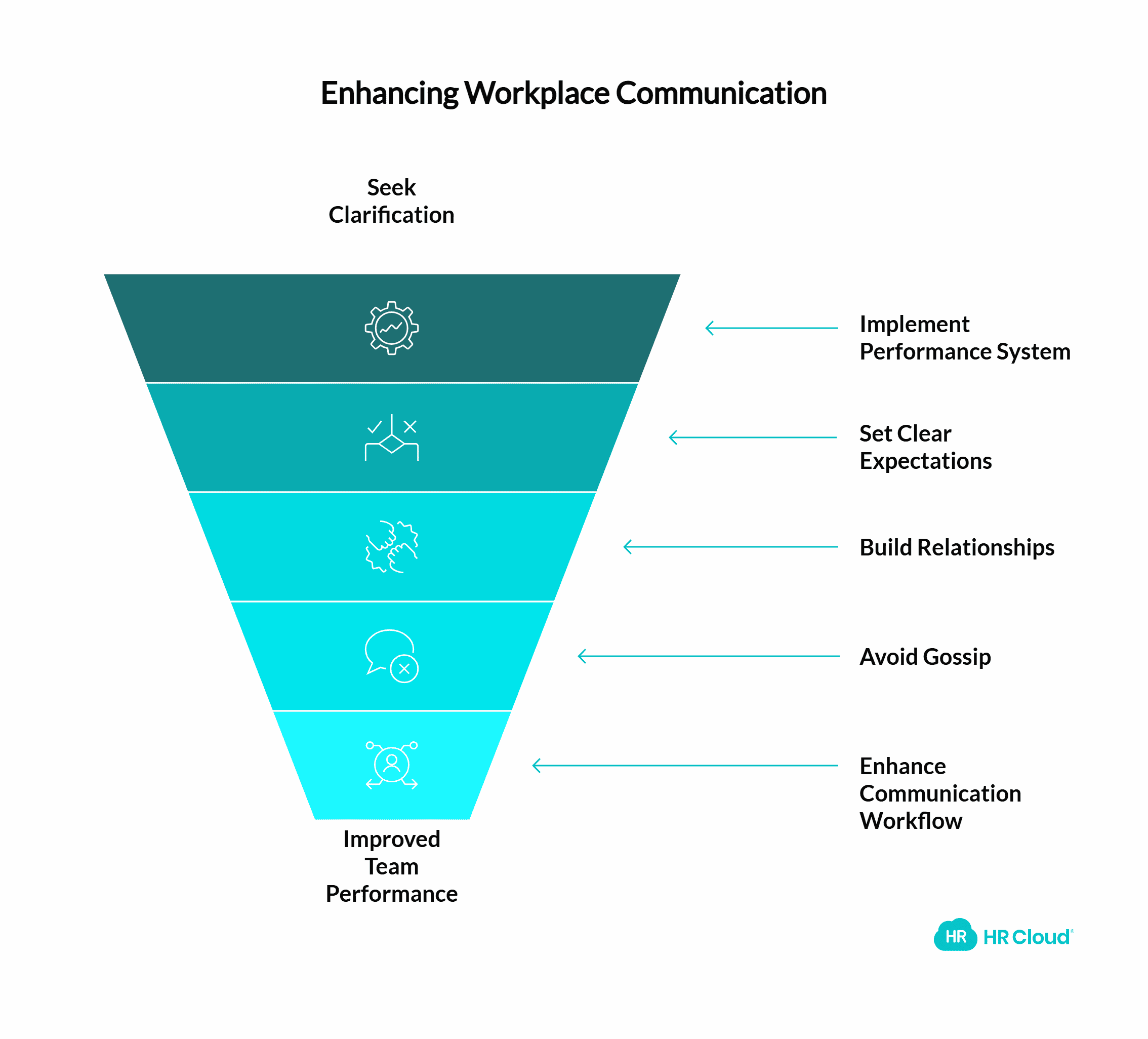
The secret to improving your effectiveness at work is communication. Do not hesitate to ask for clarification if you are unsure of your responsibilities. The best company executives are naturally curious and seek out creative solutions to problems. So why not ask for a second explanation for whatever you might find yourself not understanding? A plus would be implementing a performance management system in the process; managers and employees would benefit from it a lot, especially when it comes to effective communication during performance reviews.
Setting clear and effective communication within the workplace is very important, not only when you might have something to ask, but this is important for setting boundaries, setting clear expectations, and being at ease with yourself at the end of the day. Communication is the key solution to everything. While it may be tempting to check up on the latest news and speak with coworkers, doing so too frequently can damage your ability to perform well at work. Take an interest in your team members' lives because building relationships with them at work is crucial; nevertheless, avoid drama or gossip. It can not only affect your focus and productivity, but it can also change how other people perceive you. Avoiding such things will increase your productivity since your main focus is on your tasks.
To enhance your communication workflow and foster employee engagement, consider implementing a training communication plan. This can be part of your overall performance management system, ensuring that everyone is aligned with organizational goals. A well-designed leadership communication plan can help in establishing two-way communication emphasizing organizational goals and improving overall team performance. Additionally, setting communication goals for performance reviews can help in addressing any performance review communication needs improvement areas.
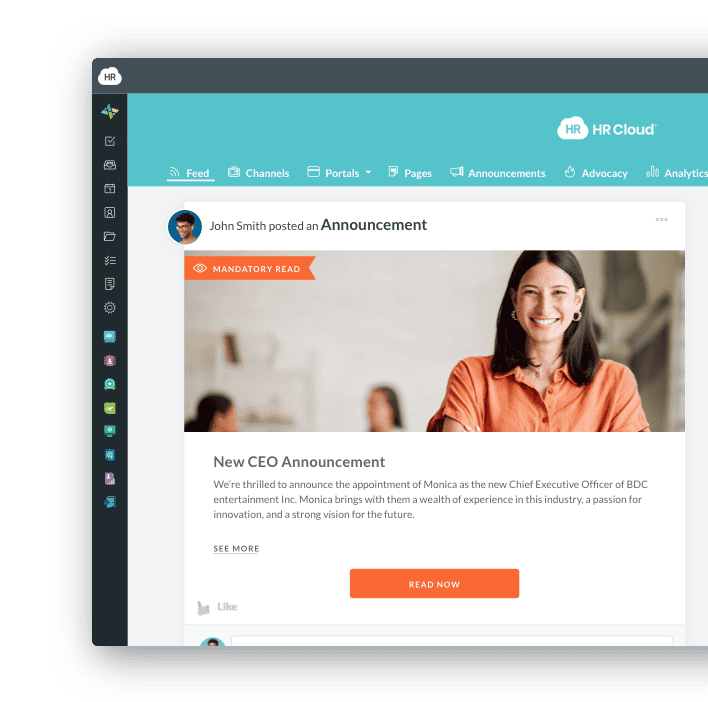
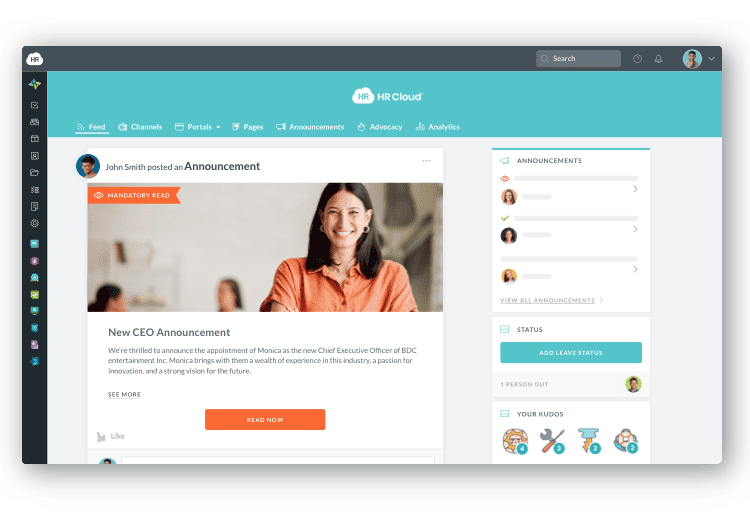
Set Priorities and Avoid Multitasking 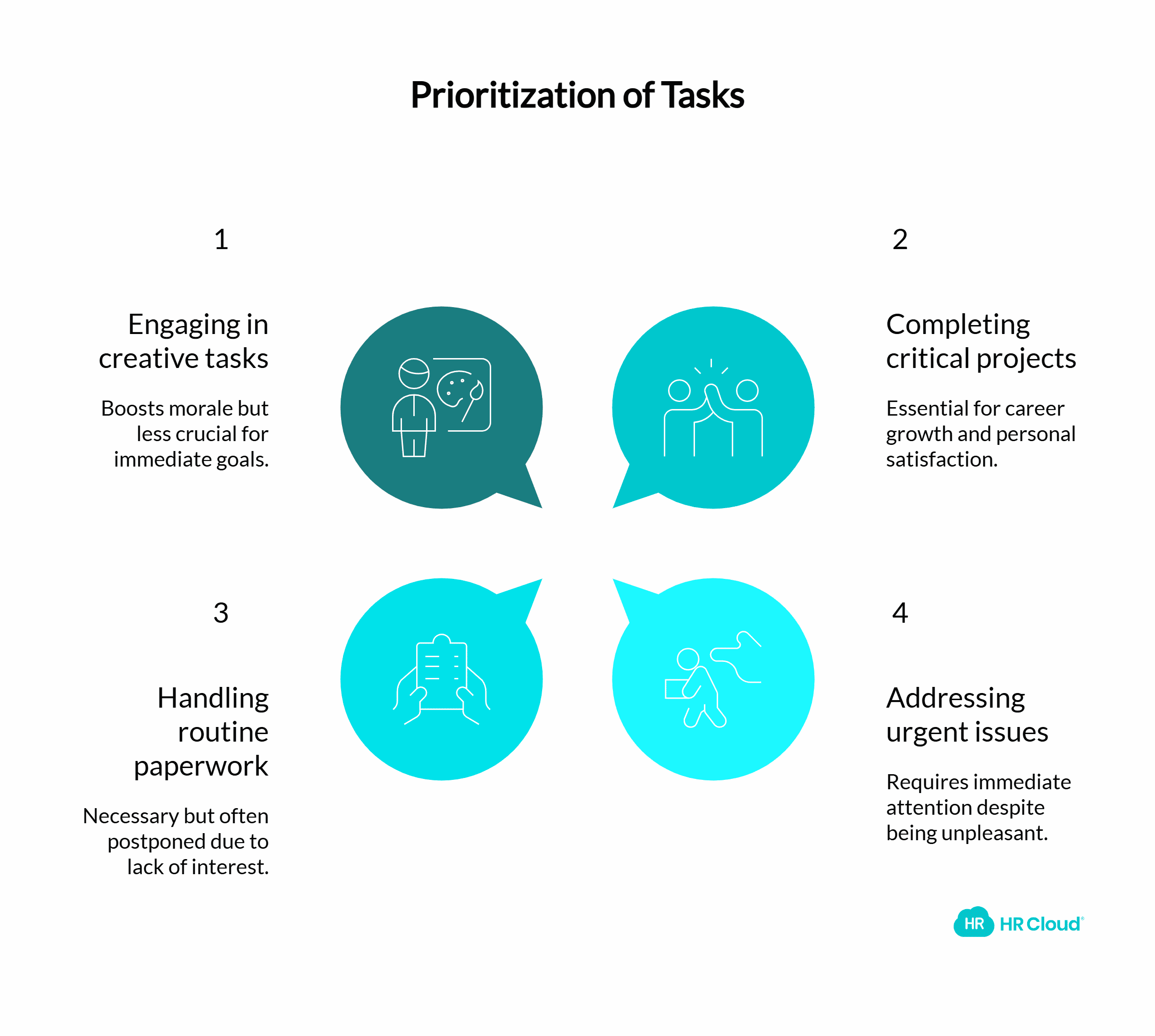
Lack of productivity is one of the main factors affecting performance at work. You won't advance in your profession very far if you can't learn how to manage your work hours and know your skill sets in this matter. It's simpler than ever to become distracted at work and waste time thanks to the internet and social media. Take frequent, brief pauses to avoid being distracted, or use performance management tools to block websites that frequently divert your attention.
Even though they are essential, we frequently put off our least favorite tasks until the last minute. Get the most important jobs finished first so they don't consume your thoughts. If you finish the first task, you can move on to another or take a break. This approach aligns with the objectives of performance management, which include improving efficiency and productivity through effective goal setting and performance benchmarks.
Prioritizing critical or high-value tasks first shows your supervisor and coworkers that you can be counted on to move goals forward, even if the task is one you don't particularly enjoy. This skill is often evaluated in performance evaluations and can contribute to your career growth.
Set a Particular Time for Meetings and Emails
A significant portion of lost productivity at work can be attributed to our inboxes. It can be tempting to check in frequently and read emails as soon as they arrive, sometimes even more than once, before we have a chance to respond or take action. Establish regular times throughout the day to check your email to minimize this and recover part of this lost time. You might want to discuss this with your employer first, but if everyone on the team gets used to it, they'll quickly realize its benefits and give it a shot.
The same goes for meetings, sometimes a 30-minute sync ends up being more than an hour sync. The best way to avoid this is to keep one-on-one meetings with the manager. This way, employees to whom the topic does not concern can be free to go. Implementing a real-time performance feedback software can help streamline these processes and improve overall efficiency.
Know Your Work Limits
It's crucial to be aware of your energy levels as well as the fact that everyone has a certain amount of work they can handle. If you start to feel tired or distracted, or if you start to put things off, you're probably getting close to your personal limit. By identifying your emotions and taking a break, you can prevent burnout. If a task is difficult or you're exhausted, change to something less hard for a bit. Return to the first work and push through after your mind has had time to clear. This self-awareness is a key aspect of effective performance management and can be incorporated into your personal development planning and skill development.
Take Full Responsibility for Your Duties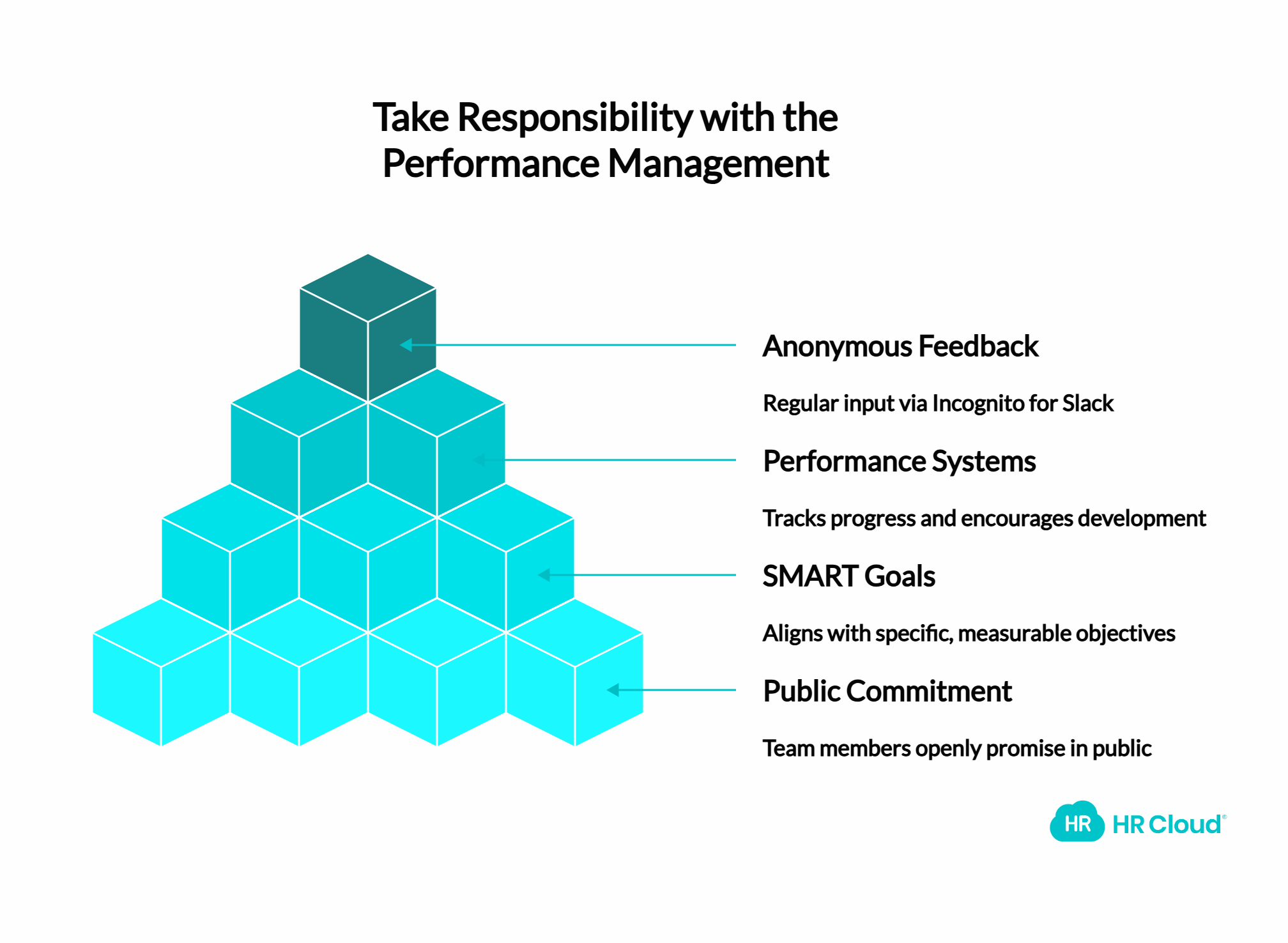
If you’re a leader, setting objectives and committing to yourself is one thing when it comes to your career. However, teams are considerably more likely to succeed if members openly promise to one another in a public setting. This approach aligns with the concept of SMART goals in performance management.
To evaluate employee performance, many businesses have implemented employee performance management and development systems. Your team will be able to see your targets or goals and how you are doing in relation to them, thanks to this kind of software, which will help you stay accountable. Additionally, you'll be able to track their development so you can encourage them and hold them responsible for achieving their objectives. This continuous feedback loop is essential for ongoing improvement and employee engagement.
To avoid any concern, consider regular anonymous feedback via Incognito for the Slack app. This way, you will be up to date and see if there is something pending in the workflow. This tool can be integrated with your performance tracking tools for a comprehensive approach to employee feedback and performance analytics.
Be Practical and Realistic
Realizing that no one is perfect is one of the elements to working productively and effectively. Everybody has "off days" where they are less focused, lack confidence, or do less well than usual. You're less likely to see any drops in productivity if you approach this with reality. Additionally, you'll be more understanding of people who are struggling or not giving it their all, which will improve team spirit and relationships. This mindset is crucial when implementing performance improvement systems and conducting performance evaluations.
Network with Professionals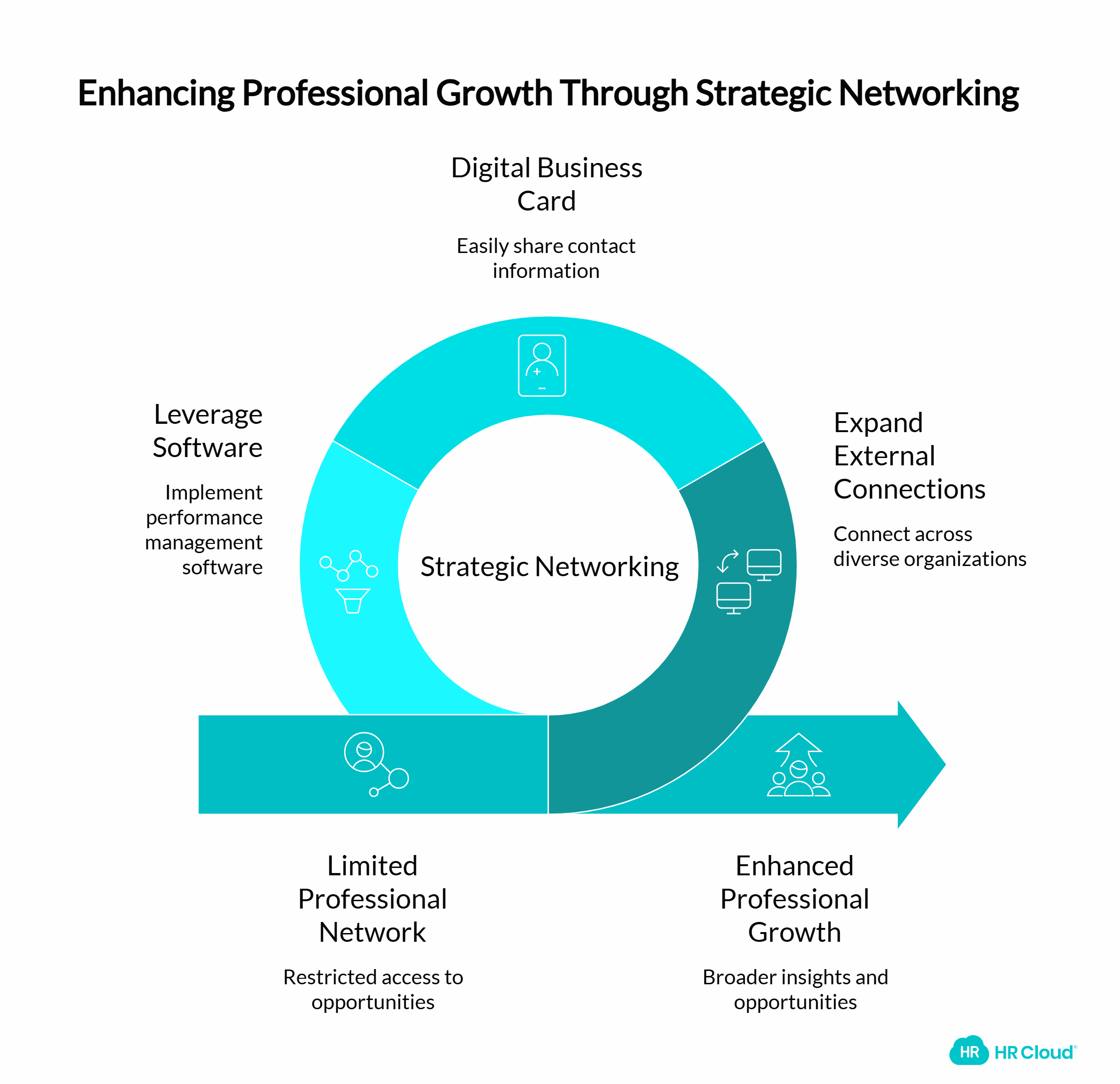
We frequently consider ways to increase our effectiveness within our teams or organizations, but you can also focus on personal development within a larger network. Make use of the chance to establish connections with individuals working for other organizations, in industries both comparable and different, online and offline. Creating a digital business card can help you easily share your contact information with others. Knowing the right people is always beneficial, and you never know where you'll meet your next buddy, business partner, or employee. Networking can also provide insights into different performance management tools and best practices used across industries, contributing to your overall skill development and understanding of the employee lifecycle.
By implementing these strategies and leveraging performance management software, you can create a more effective performance management system that fosters a feedback culture, enhances communication during performance reviews, and supports your professional growth. Modern performance management software often includes features like 360-degree feedback, employee self-appraisals, customizable templates for performance reviews, and automated review cycles. These tools can provide valuable performance insights and facilitate competency-based evaluations.
Remember, the key to success lies in consistent effort, clear communication, and a commitment to ongoing improvement through training and development. Effective coaching, regular performance reviews, and the use of relevant performance metrics can all contribute to your career advancement. Additionally, don't underestimate the power of employee recognition in boosting motivation and engagement.
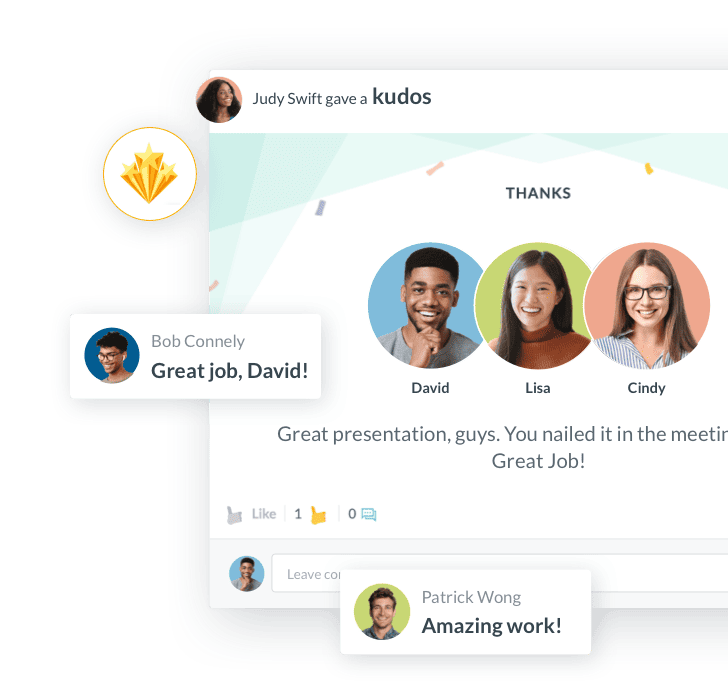
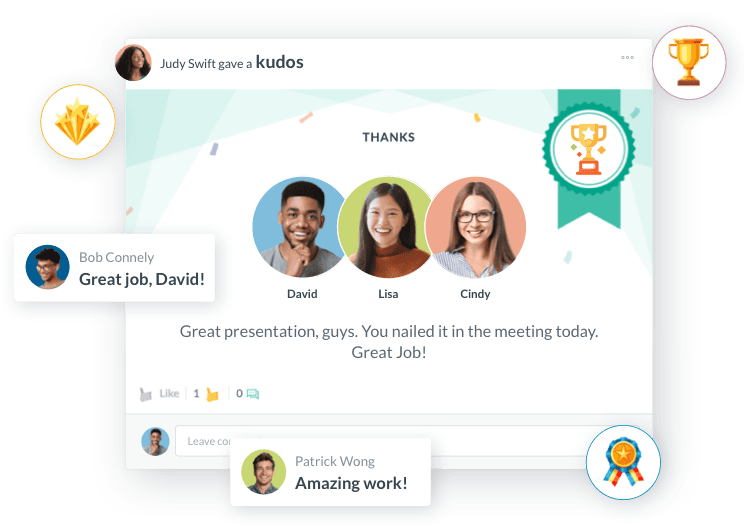
FAQs
1. How can you improve your performance at work?
Ans: Focus on clear communication, prioritize tasks effectively, avoid multitasking, and use performance management tools. Regular self-reflection, feedback, and continuous learning are key.
2. What are the top 3 skills to improve?
Ans: Communication – Clarity and assertiveness in the workplace.
Time Management – Prioritizing tasks and avoiding distractions.
Accountability – Owning responsibilities and delivering results consistently.
3. What are the top 3 areas to improve work performance?
Ans:
Focus and Productivity – Avoid multitasking and set daily goals.
Goal Alignment – Set SMART goals tied to team and company objectives.
Feedback and Learning – Use reviews, feedback, and tools for growth.
4. How do I say I will improve my work performance?
Ans:
Example: “I’m actively working on improving my time management and seeking regular feedback to enhance my overall performance.”
5. What are the top 3 work strengths?
Ans: Reliability – Delivering on commitments.
Team Collaboration – Building strong relationships at work.
Adaptability – Responding well to change and feedback.
6. What are the 5 words performance review?
Ans: Focus on: Accountability, Communication, Initiative, Productivity, Growth.
7. How can work be improved?
Ans: Use real-time performance tracking tools
Limit unproductive meetings and email.
Encourage two-way communication and recognition
Set clear goals and review them regularly
8. What is an example of overall performance comments?
Ans: “You consistently meet deadlines, take ownership of your work, and communicate effectively with your team. Continued focus on time management will further elevate your performance.”
9. How do you fix poor performance at work?
Ans: Identify the root cause (e.g., unclear expectations, burnout)
Set clear performance goals
Provide timely feedback and support
Use performance software to track progress and accountability

Keep Reading
Equity in the Workplace: A Practical Guide to Building Fairness and Opportunity
Workplace equity shouldn't be an aspiration—it should be the foundation of how
7 Employee Relations Responsibilities That Transform Workplace Culture
Employee relations shapes how people experience work every single day. It's not just
AI and Authenticity: Finding the Right Balance in Enterprise Recognition Platforms
The employee recognition landscape splits between AI-heavy platforms risking authenticity
Like What You Hear?
We'd love to chat with you more about how HR Cloud® can support your business's HR needs. Book Your Free Demo

Build a Culture of Recognition. Boost Engagement. Guaranteed.
Workmates empowers employees to stay informed, connected, and appreciated—whether they’re on the front line, in the office, or remote. Recognition drives 12x higher engagement.Trusted by industry leaders in every sector




Cut Onboarding Costs by 60%.
Take the confusion and follow-ups out of onboarding with automated workflows, digital forms, and structured portals—so new hires ramp faster 3X quicker.Trusted by industry leaders in every sector




